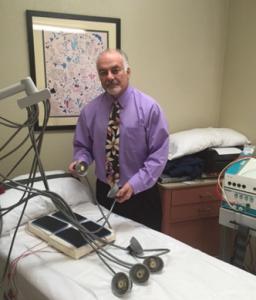Richard Sorgnard Discusses How Electronic Medicine May Supplement and Replace Prescriptions
Richard Sorgnard believes medicine still has a long way to go and that more breakthroughs will occur in the future
LAS VEGAS, NV, UNITED STATES, December 23, 2020 /EINPresswire.com/ -- Medicine has come a long way over the last century. Just a few centuries ago, doctors had little understanding of the body and what caused diseases. Treatment options were limited. Now, medicine is among the most heavily researched and technologically advanced industries in the world. Yet Richard Sorgnard believes medicine still has a long way to go and that more breakthroughs will occur in the future.“We should be grateful for how far we’ve come over the hundred or so years,” Richard Sorgnard says. “Modern healthcare is far better than what we had just decades ago. Still, we can continue to advance medical technology and I believe eletronic medicine in particular will lead to many breakthroughs.
With electronic medicine, doctors can use electronic technologies to address conditions and supplement traditional forms of treatment, such as prescriptions. Richard Sorgnard believes this field has a lot of room to grow.
“We’re already using electronic medicine to treat headaches, chronic pain, and in some cases, even depression,” Richard Sorgnard notes. “Still, this is an emerging field and I believe the electronic technologies we’re using today will look primitive in 50 years.”
One possible way to treat people is to use an electronic device that will then activate and stimulate nerves when needed. By directly stimulating nerves it’s possible to reduce or eliminate pain, to control immune responses, and perform other things. Richard Sorgnard believes such devices could have a huge number of applications.
“Electronic medicine is being used to treat diseases that were previously hard to control. Crohn’s disease has been very difficult to treat, for example, and while prescription drugs can sometimes control symptoms, many people quickly build up immunity to said drugs,” Richard Sorgnard argues. “Electronic medical technologies are already being used to treat Crohn’s disease. I believe many other serious and debilitating conditions could be treated.”
In some cases, electronic medicine can also be used to supplement traditional treatment methods, such as prescription drugs. Some electronic systems can automatically deliver insulin by using tiny needles to monitor and inject drugs at the right time.
“Some patients don’t take drugs as prescribed and that can reduce their effectiveness. With electronic technology, we can automatically deliver drugs when needed,” Richard Sorgnard argues. “This could dramatically increase the effectiveness of pharmaceuticals and the like."
Richard Sorgnard Discusses Nanotechnology and Future of Medicine
With nanotechnology advances rapidly, we may be on the cusp of a golden age of electronic medicine. As electronics become smaller, smarter, and more energy efficient, opportunities to develop groundbreaking technologies will increase.
“Definitely, I am keeping an eye on nanotechnology,” Richard Sorgnard says. “Improvements in nanotechnology could lead to massive improvements in electronic medicine. When we look at medical technology at the start of the 20th century, it seems primative to our modern sensibilities. A hundred years from now, people will probably look back on our medical technology and find it similarly primative."
Caroline Hunter
Web Presence, LLC
+13059267225 ext.
email us here

